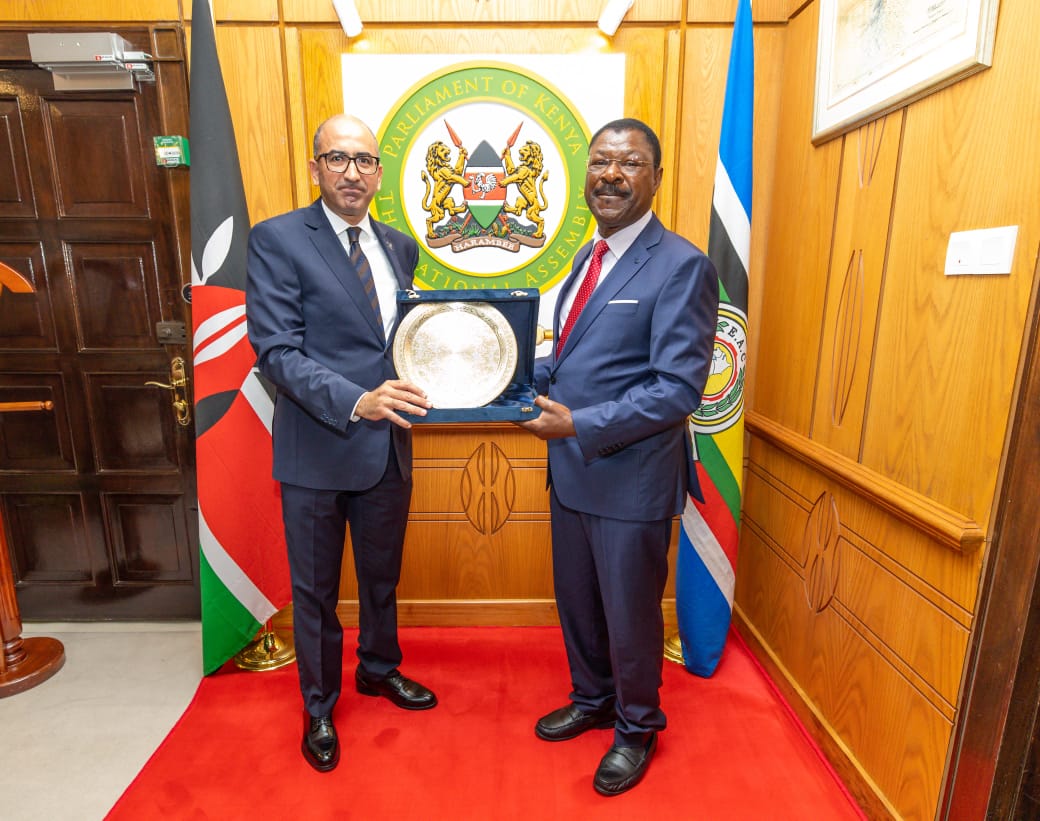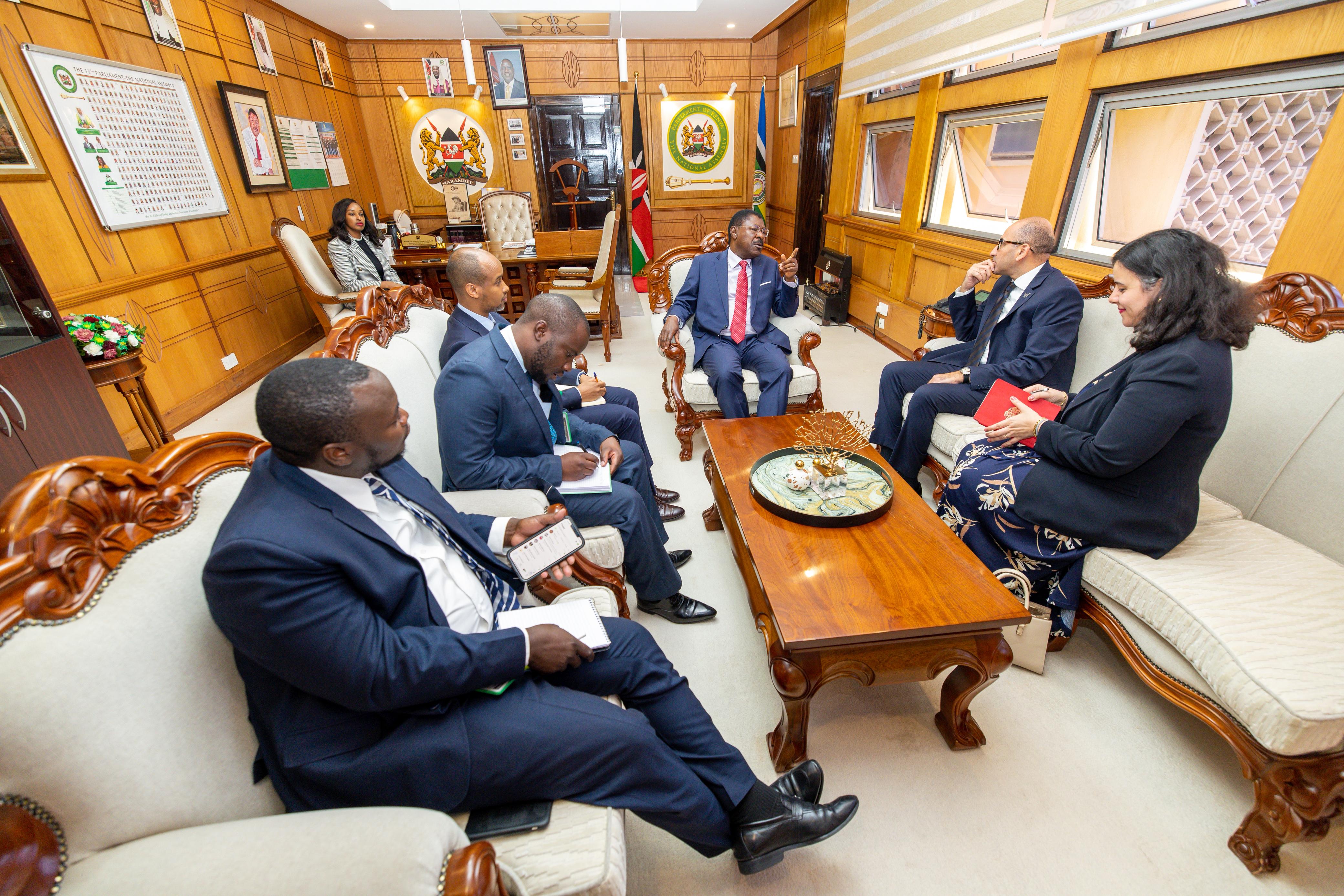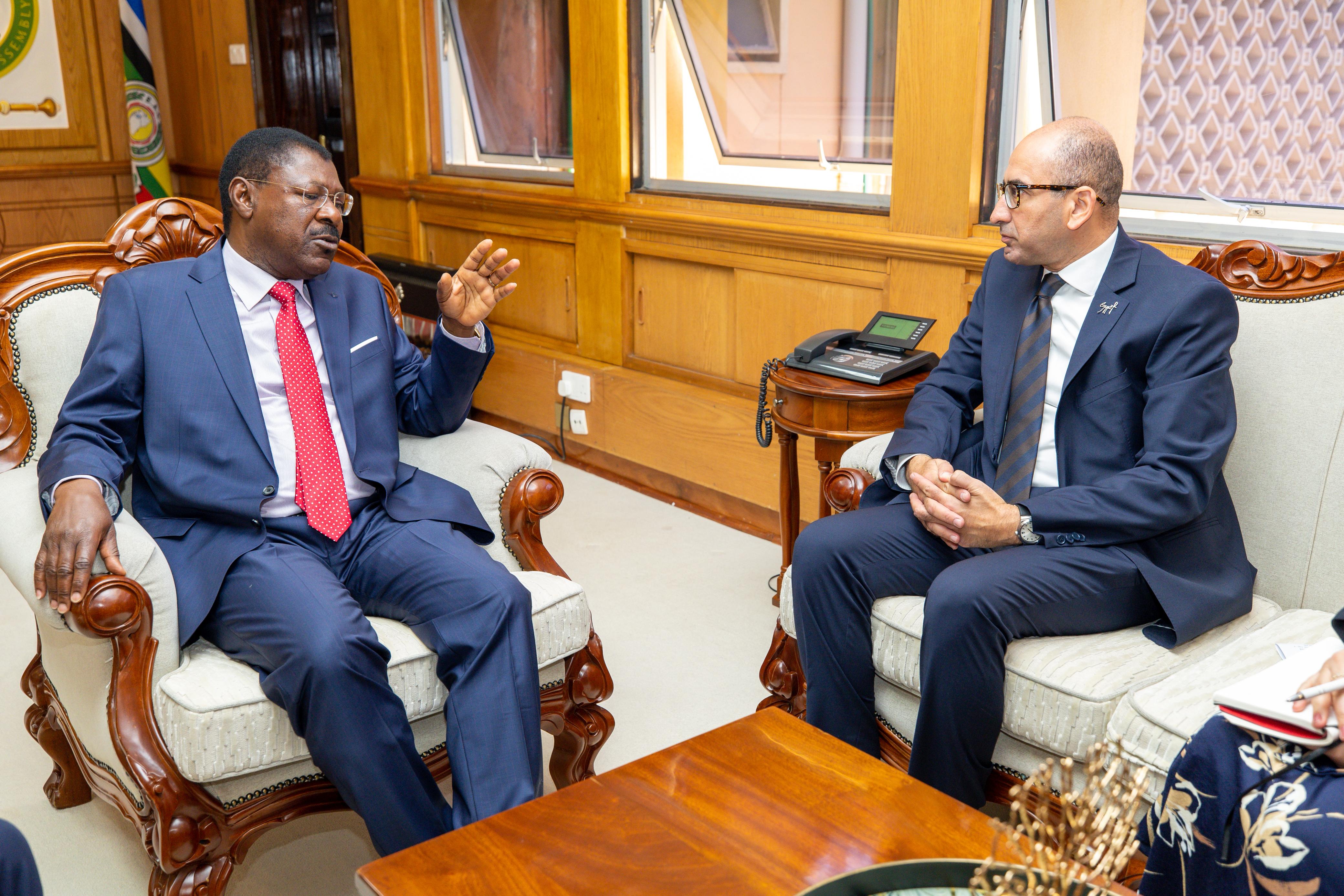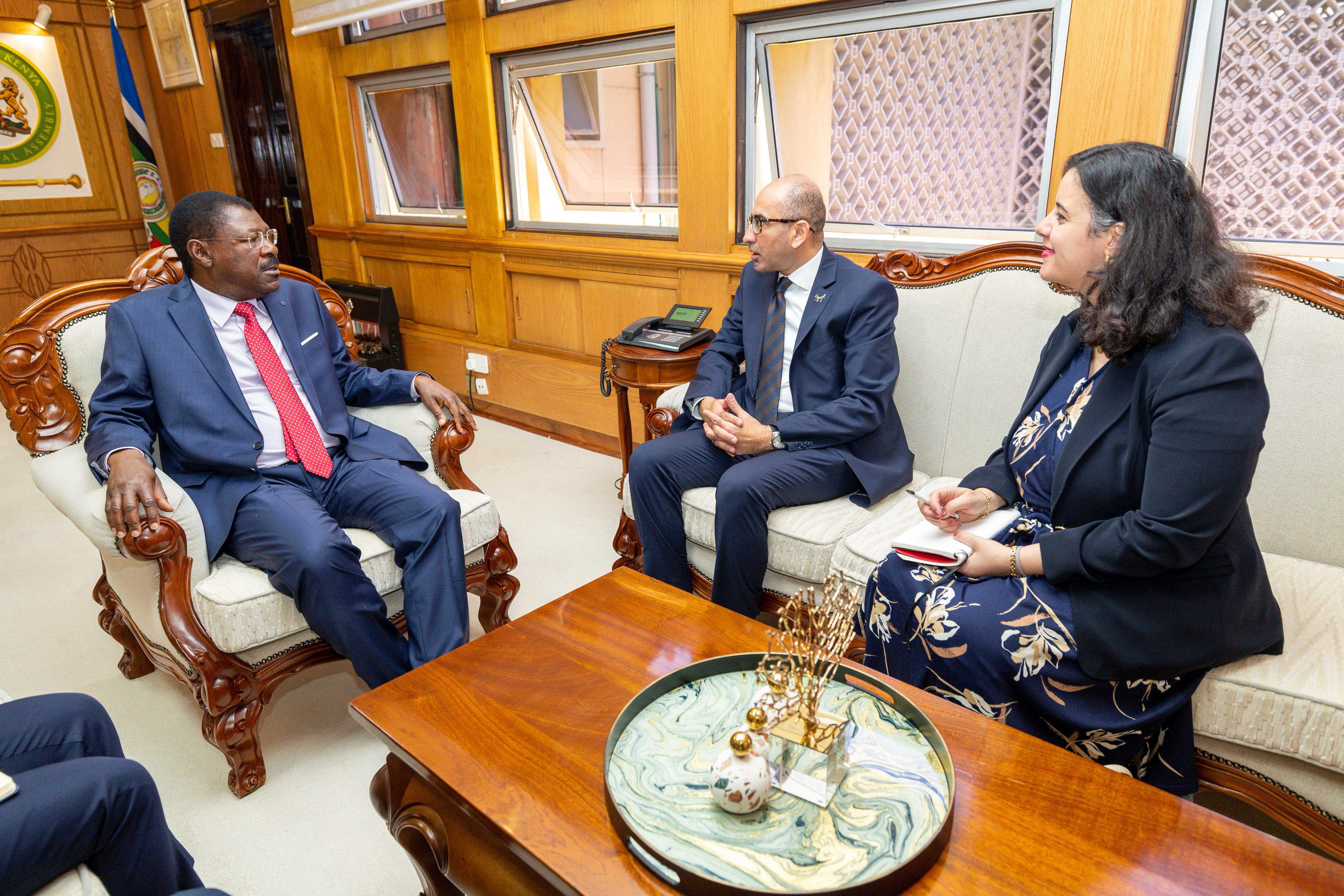
 The speaker of the National Assembly, Wetang’ula and Ambassador Hatem Yousri Hosni during a courtesy call at the Parliament in Nairobi
The speaker of the National Assembly, Wetang’ula and Ambassador Hatem Yousri Hosni during a courtesy call at the Parliament in NairobiThe speaker of the National Assembly Moses Wetang’ula has called on the government of Egypt to embrace inclusive dialogue in resolving its long-standing dispute with Ethiopia over the use of the Nile Basin waters following the unveiling of the Grand Ethiopian Renaissance Dam (GERD).
Speaking on Wednesday after meeting Hatem Yousri Hosni,Ambassador of the Arab Republic of Egypt, Wetang’ula emphasized that the conflict surrounding the dam project can only be sustainably resolved through consensus, mutual respect, and the involvement of all stakeholders.
He urged Cairo to “call everybody to the table” in order to reach an amicable settlement that safeguards regional peace and stability.
“We have no problem with you, Egypt, nor with our neighbours in Ethiopia. In fact, we are beneficiaries of the Renaissance Dam since we import electricity from them. And as my President recently said, if you, Egypt, have any concerns about the Nile, do not focus solely on Ethiopia. Call everyone to the table, and together we can help resolve the issues,” Wetangula said.
The Speaker emphasized on water, as a shared resource,should unite rather than divide nations, adding that dialogue offers the only sustainable solution to the decades-long impasse.
He cautioned against unilateral actions that could escalate tensions in the region, warning that such moves risk destabilizing the Horn of Africa.

Ethiopia, however, maintains that the GERD is vital for its energy security and economic development.
The project has also left Sudan caught in the middle of the two regional powers.
However, Ambassador Hatem Yousri Hosni observed that the construction of the Grand Ethiopian Renaissance Dam (GERD) goes against international law and does not respect established legal frameworks.
He explained that Egypt has, for more than a decade, sought to sign a binding treaty that would safeguard its rights while ensuring equitable use of the Nile waters

“In Washington, for instance, we were ready to sign a treaty after lengthy negotiations during the first administration of President Donald Trump. At the very last moment, however, Ethiopia failed to show up. They were simply buying time to complete the construction of the dam,” Ambassador Hosni said.
While noting that Egypt respects the right of every Nile Basin country to benefit from the waters through electricity generation, he expressed disappointment that Kenya participated at a high-level launch of the dam.
“We were frustrated that Kenya was represented at that event. No other country from the Basin was present only Kenya,Djibouti and Somalia are not part of the Nile Basin,” he added.
Ambassador Hosni, however, stressed that Egypt continues to regard Kenya as a genuine and trusted friend.
He noted that while South Sudan’s position has been a source of frustration, Kenya occupies a unique and elevated place in Egypt’s foreign policy agenda.
“And your benefiting from the Ethiopian dam does not harm us. Our issue with Ethiopia is not about the electricity they generate but about the Nile waters. We must reach a bilateral or trilateral agreement between Egypt, Sudan, and Ethiopia an agreement that is binding under international law,” he said.

“While in Ethiopia, president Ruto emphasized the need for a bilateral or trilateral agreement between Egypt, Sudan, and Ethiopia, one that must be anchored in international law.As he returns from New York, I will speak with him and advise him to engage the Egyptian leadership as well as other Nile Basin countries so that we can come together,” Wetang’ula stated.
“Africa has had too many conflicts, and we do not want new ones. We must resolve our issues peacefully,” he added.
On his part, Ambassador Hosni reiterated that Egypt would never tolerate any infringement on its rights over the Nile waters, describing the river as “an existential part of our life.”
“This is an eternal bond that we must preserve, not fight over. We should cooperate on it. And as Kenyans are giving us the water to live, we are willing to give you back in return through electricity, healthcare, social welfare, housing, and social housing projects that you are undertaking,” he said.
He underscored the importance of harnessing the Nile’s resources equitably to promote growth, energy access, and stability across the basin.
“Kenya contributes significantly to the Nile waters through Lake Victoria, and as part of the Basin, we have a responsibility to advocate for collective solutions that respect the rights and needs of all countries involved,” he noted.
He further highlighted Kenya’s cordial ties with both Cairo and Addis Ababa, stressing that Nairobi is ready to play a mediatory role in building consensus.
He underlined the importance of strengthening Egypt–Kenya relations beyond water diplomacy, citing opportunities in healthcare, trade, and parliamentary exchanges.
During the meeting, the Egyptian ambassador affirmed his country’s intention to deepen cooperation with Kenya in areas such as energy, social welfare, and investment, while reiterating their concerns over Ethiopia’s unilateral filling of the GERD reservoir, which they argue violates international law.
Wetang’ula urged both sides to put the welfare of their people above political brinkmanship, saying: “A peaceful and cooperative approach to the Nile issue will not only safeguard livelihoods but also serve as a model for resolving resource-based disputes across Africa.”












